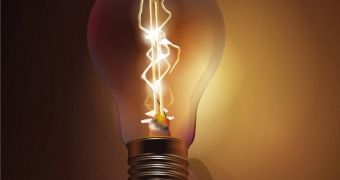Researchers at the Ohio State University have conducted a series of experiments whose findings suggest that the color of the light one is exposed to during nighttime influences mood.
The specialists explain that, while few people prefer sleeping with the light on, the fact remains that quite a lot of individuals work night shifts.
Therefore, it is important to determine how the environment they work in can alter their mood and, subsequently, their performances.
Writing in today's issue of The Journal of Neuroscience, the researchers explain that, as part of their investigation, they exposed several mice to night lights of different colors.
They found that the brains of rodents exposed to either blue or white light underwent noteworthy changes.
More precisely, they had fewer dendritic spines, i.e. hairlike growths on brain cells that serve to transmit messages from one cell to another.
As mentioned on the official website for the Ohio State University, these changes have been linked to depression by several previous studies.
By contrast, mice exposed to red light did not display any worthwhile depressive-like symptoms.
Lastly, rodents that were allowed to spend the night in complete darkness fared better than the ones belonging to the other three groups.
“The behavior tests and changes in brain structure in hamsters both suggest that the color of lights may play a key role in mood.
“In nearly every measure we had, hamsters exposed to blue light were the worst off, followed by those exposed to white light. While total darkness was best, red light was not nearly as bad as the other wavelengths we studied,” study co-author Randy Nelson sums up his and his colleagues’ findings.
Although these experiments were carried out on animals, the researchers who worked on this project suspect that their findings also hold true for humans.
“Light at night may result in parts of the brain regulating mood receiving signals during times of the day when they shouldn’t. This may be why light at night seems to be linked to depression in some people,” researcher Tracy Bedrosian argues.

 14 DAY TRIAL //
14 DAY TRIAL //